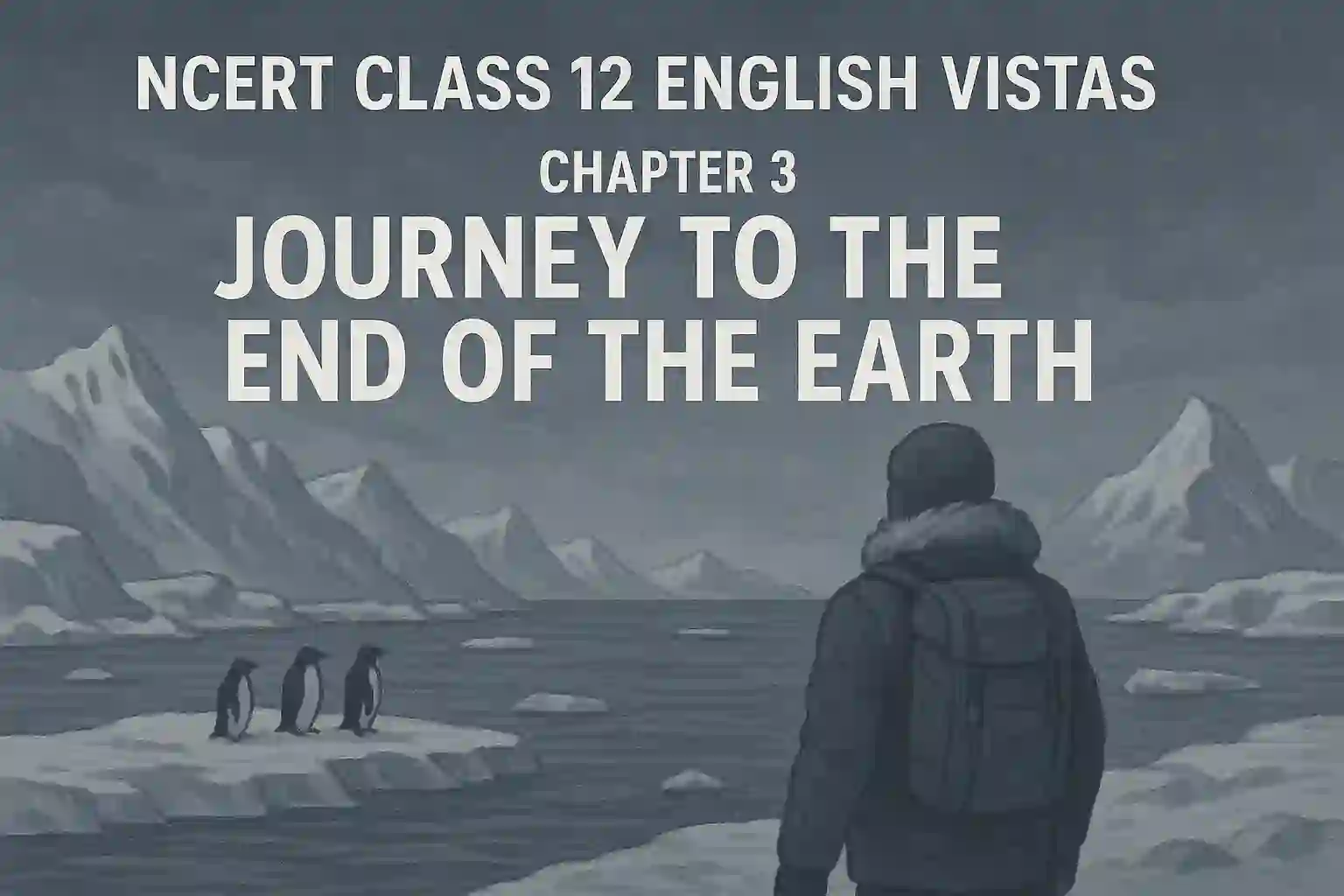Journey to the End of the Earth is Chapter 3 in the Class 12 English Vistas textbook by NCERT. Written by Tishani Doshi, this chapter is based on her actual trip to Antarctica as part of the ‘Students on Ice’ programme. The chapter mixes travel writing with serious topics like climate change, environmental science, and how human life is connected to the health of our planet. For students preparing for CBSE board exams, this chapter is often used to test understanding, interpretation, and awareness about global issues. In this post, you’ll find the NCERT PDF link, chapter summary, key themes, and exam tips.
I chose to write about this chapter because it’s one of the few in the Class 12 English syllabus that connects literature with real-world scientific problems. When I first read it, I felt like I had travelled to Antarctica myself, but what stayed with me more was how the author explains climate change in such a personal way. This chapter may seem a bit technical in places, especially with geographical and scientific references, but it’s one of the most meaningful in the textbook. It helps students build environmental awareness, which is more important than ever in today’s time.
Chapter Overview: What is “Journey to the End of the Earth” About?
This chapter is a first-person account of Tishani Doshi’s journey to Antarctica on a Russian research ship called Akademik Shokalskiy. She travels with a group of high school students as part of a climate education programme. The chapter explores Antarctica’s unique landscape, its importance in Earth’s climate system, and how it helps scientists study global warming and evolution.
What makes the story special is how Doshi blends personal experiences with environmental science. From crossing the rough Drake Passage to standing among penguins, she shows how untouched and fragile Antarctica really is.
Main Points:
- The Earth was once a single landmass—Gondwana—and Antarctica was in the centre of it.
- Antarctica is a living record of Earth’s geological and climatic history.
- The continent’s isolation makes it the best place to study climate change.
- The visit makes the author (and the students) reflect on human impact on the planet.
- The sight of melting glaciers and collapsing ice shelves leaves a lasting impression.
Key Themes in the Chapter
- Climate Change: The author explains how Antarctica helps in studying changes in global temperatures and ice patterns.
- Human-Nature Relationship: It shows how far removed we have become from nature and what that means for the future.
- Education Through Experience: The ‘Students on Ice’ programme is used to stress the value of experiential learning.
- History of the Earth: The mention of Gondwana and continental drift gives the chapter a historical and scientific base.
Why This Chapter is Important for Students
- Frequently Asked in Boards: Both MCQs and 6-mark questions are commonly picked from this chapter
- Builds Environmental Awareness: Helps students think about climate change and their role in the future
- Vocabulary & Expression: Introduces new terms and scientific ideas in simple language
- Interdisciplinary Learning: Combines literature, geography, and science—perfect for general awareness
This chapter can also help in writing essays or giving presentations on climate change in school activities.
Download PDF
You can easily download the official NCERT PDF for Class 12 English Vistas Chapter 3 from here:
NCERT Class 12 English Vistas Chapter 3: Journey to the End of the Earth



















